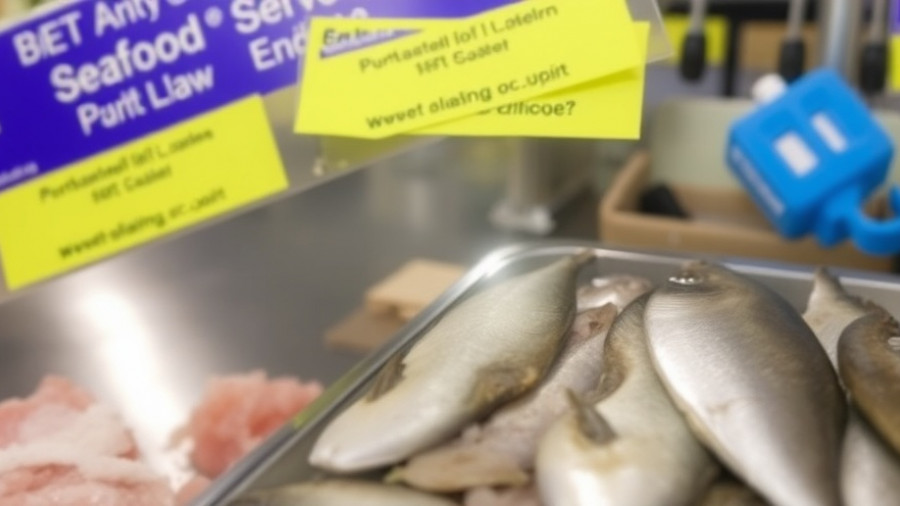
Why Seafood Labeling Matters
With seafood being a staple in many households, understanding its origin is more important than ever. Alabama's recent law mandating that restaurants and grocery stores disclose seafood sources aims to empower consumers to make informed choices. State Representative Chip Brown has led the charge in pushing for such transparency, driven by a desire to promote local fisheries and protect consumers from misleading practices.
Current Challenges in Enforcement
Despite the good intentions behind the new seafood labeling law, its implementation has been marred by inconsistent enforcement. Brown claims that the Alabama Department of Public Health has not prioritized the necessary oversight. This concern reflects a broader issue: many restaurants are reportedly finding ways to circumvent the law, blurring the lines of compliance. In light of this, increased enforcement mechanisms, including potential DNA testing technologies, could be essential in ensuring adherence to the law.
The Role of the Community in Seafood Awareness
Community engagement plays a vital role in supporting local fisheries. As consumers become more conscious of their seafood choices, they can influence market demands. Ernie Anderson, a local seafood business owner, emphasizes that while some restaurants comply with the law, there’s still a significant gap in awareness and proper signage. Increased public discourse about where seafood comes from can encourage compliance and promote local options.
Food for Thought: What You Can Do
As consumers, asking questions about seafood sources when dining out or shopping can drive change. By inquiring about the origin of the seafood being offered, you not only educate yourself but also signal to restaurants and retailers that customers value transparency. Take the time to read labels at grocery stores, support establishments that prioritize local products, and share your insights with friends and family.
Looking Ahead: Trends and Predictions in Seafood Transparency
The ongoing dialogue about seafood labeling reflects a larger trend towards transparency in food sourcing, an issue that has gained traction across various sectors. As consumer preferences evolve, the demand for transparency and ethical sourcing will likely shape the future of food labeling laws. Proactive legislation, like that proposed by Brown, could lead to more robust protection for local fisheries and healthier choices for consumers.
 Add Row
Add Row  Add
Add 




Write A Comment